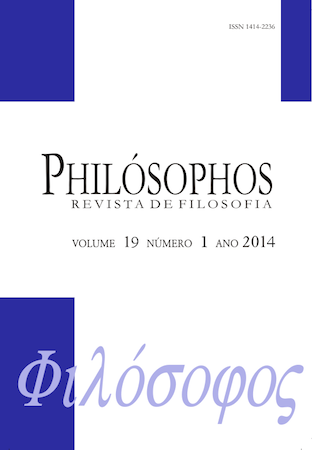THE PROBLEM OF THE TRANSCENDENCE OF PERCEPTUAL OBJECT AND THE PHYSICAL OBJECT IN HUSSERL’S LOGICAL INVESTIGATIONS
DOI:
https://doi.org/10.5216/phi.v19i1.30410Keywords:
Edmund Husserl, phenomenology, immanence, transcendenceAbstract
It is well known that in the first edition of Logical Investigations (1900/1901), Husserl defines the research field of phenomenology as a psychological immanence. However, if we closely examine the criteria used for defining the psychological immanence, we find that they imply certain conception of transcendence of the intentional object. This conception of transcendence leads to epistemological problems concerning the relationship between the physical object and the object of perception. After all, it would be correct to say that the physical object is transcendent in the same sense which it is stated that the perceived object is transcendent to the experience of perceiving? This article seeks to show how the transcendental turn of 1906/1907 and the consequent distinction between three concepts of immanence and transcendence in his work Idea of Phenomenology contributed to solving such problems.
Downloads
Downloads
Published
How to Cite
Issue
Section
License
Authors who publish in this journal agree to the following terms:
- Authors retain copyright and grant the journal right of first publication, with the work simultaneously licensed under a Creative Commons Attribution License that allows others to share the work with an acknowledgement of the work's authorship and initial publication in this journal.
- Authors are authorized to enter into separate, additional contractual arrangements for the non-exclusive distribution of the journal's published version of the work (e.g., publishing in an institutional repository or as a book chapter), with an acknowledgement of its authorship and initial publication in this journal.















